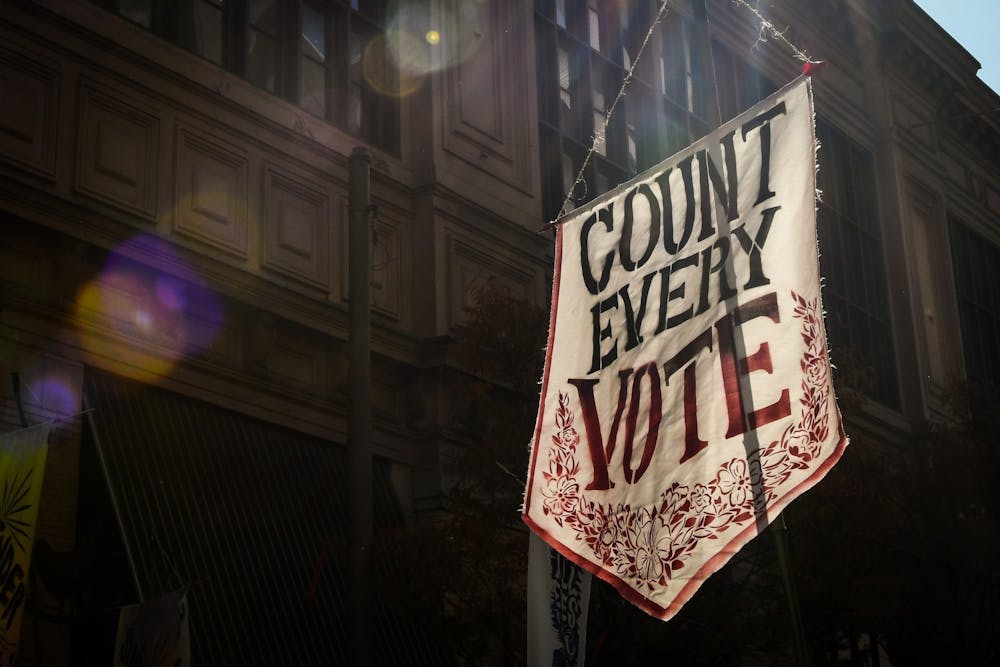
A recent study titled “The racial burden of voter list maintenance errors: Evidence from Wisconsin’s supplemental movers poll books,” found that errors in cleaning voter rolls in Wisconsin in 2017 and 2018 disproportionately affected minority voters.
Credit: Kylie CooperErrors in cleaning voter rolls in Wisconsin in 2017 and 2018 disproportionately affected minority voters, according to a Penn study.
The Electronic Registration Information Center, which compares voter rolls against other records to determine whether registered voters moved or died, is more likely to incorrectly identify racial and ethnic minorities who have moved and remove their voter registration, Penn Today reported. Since ERIC is utilized by 30 states and Washington, D.C., study authors believe the error that occurred in Wisconsin may have implications for other states around the country.
The study was conducted by Political Science professor Marc Meredith and Wharton senior Katie Steele in collaboration with professors from Yale University and Harvard University.
Meredith told Penn Today the study results highlight how voter registration is difficult for people who move frequently, and there is an overlap between frequent movers and racial and ethnic minorities.
"Moreover, if there's disproportionate errors in identifying racial and ethnic minorities, it might be further making it difficult for people who historically have found it difficult to vote," Meredith told Penn Today.
Study authors believe stronger enforcement of the National Voter Registration Act, which prevents states from removing voter registrants from rolls without a clear indication that a registrant has moved or died, might help relieve issues associated with the cleaning of voter registration rolls, Penn Today reported.
Stronger enforcement of the law would also give registrants time to remedy the situation if they are wrongly taken off the rolls, Meredith told Penn Today.
The Daily Pennsylvanian is an independent, student-run newspaper. Please consider making a donation to support the coverage that shapes the University. Your generosity ensures a future of strong journalism at Penn.
Donate







